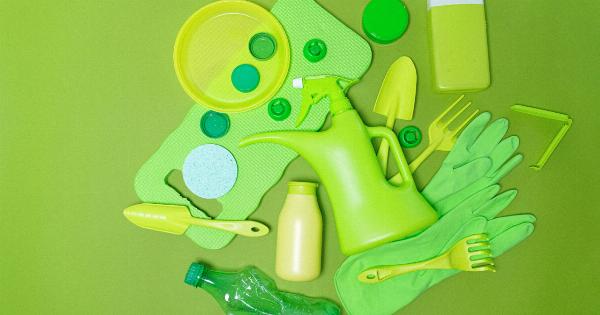Ensuring good oral health practices from an early age is crucial for your child’s overall well-being. Establishing healthy dental habits can help prevent dental issues and promote a lifetime of healthy smiles.
From the emergence of the first tooth to regular dental visits, here are some essential steps to start your child’s oral health journey.
Getting Started: The First Tooth
The journey begins when your child’s first tooth emerges. This typically occurs around six months of age, although the timing can vary. As soon as that tiny tooth makes its appearance, it’s important to start taking care of it.
Use a soft and age-appropriate toothbrush specifically designed for infants. Gently brush the tooth and the area along the gumline twice a day, using water or a smear of fluoride toothpaste no larger than a grain of rice.
This helps remove any plaque or bacteria buildup.
Introducing Good Habits
As more teeth come in, you can switch to a small, soft-bristled toothbrush and gradually increase the amount of toothpaste to a pea-sized portion.
Encourage your child to spit out the toothpaste instead of swallowing it, as excessive fluoride ingestion can lead to fluorosis.
Make brushing teeth a fun and engaging activity. Sing songs, play games, or use toothbrushes with colorful designs to make it exciting for your child.
Supervise and assist them until they have the coordination to brush effectively on their own, usually around the age of 6 or 7.
The Role of Diet in Oral Health
A healthy diet plays a significant role in your child’s oral health. Limiting sugary foods and drinks and promoting a balanced diet rich in fruits, vegetables, and whole grains can help prevent tooth decay.
Avoid letting your child fall asleep with a bottle containing anything other than water, as this can lead to early childhood tooth decay.
Encourage your child to drink water throughout the day, as it helps wash away food particles and keeps the mouth hydrated. Remember to avoid excessive consumption of acidic beverages such as fruit juices and soda, as they can erode tooth enamel.
Flossing and its Importance
Flossing is a crucial step in maintaining good oral hygiene. Start flossing your child’s teeth as soon as they have two teeth that touch each other.
Using a child-friendly flossing tool or a floss pick can make the process easier and more enjoyable.
Show your child how to gently guide the floss between their teeth and along the gumline. Encourage them to floss at least once a day to remove plaque and food particles that regular brushing can’t reach.
The Role of Fluoride
Fluoride is essential for strengthening tooth enamel and preventing tooth decay. Most tap water contains fluoride, but if your water supply doesn’t, your dentist may recommend fluoride supplements or topical fluoride treatments.
It’s important to teach your child to rinse with fluoride mouthwash after brushing, especially if they are at a higher risk of cavities. However, ensure your child spits out the mouthwash and doesn’t swallow it.
The Importance of Regular Dental Visits
Regular dental check-ups are crucial for your child’s oral health. Start scheduling dental appointments as soon as their first tooth appears, or by their first birthday.
These early visits allow the dentist to monitor the development of your child’s teeth and address any concerns promptly.
During these visits, the dentist can also provide guidance on proper oral care techniques and answer any questions you may have.
Regular dental visits help establish a positive relationship with the dentist and can reduce dental anxiety in the long run.
Protecting Teeth During Sports
If your child is involved in sports, encourage them to use a mouthguard to protect their teeth from trauma or injury. Mouthguards help cushion and protect the teeth, gums, and jaws, minimizing the risk of dental emergencies.
There are different types of mouthguards available, including custom-fit ones made by your dentist. Discuss with your child’s dentist to determine the most suitable option based on their age, development, and specific sporting activities.
Setting a Good Example
As a parent, you play a crucial role in shaping your child’s oral health habits. Set a good example by practicing good oral hygiene yourself. Let your child see you brushing, flossing, and maintaining a healthy diet.
Brushing and flossing together can also make it a fun family activity. Use this time to reinforce the importance of oral health and educate your child on the proper techniques to maintain a healthy and bright smile.
Dealing with Dental Anxiety
Some children may experience dental anxiety or fear of visiting the dentist. To help alleviate their anxiety, consider choosing a pediatric dentist who specializes in treating children.
Pediatric dentists have additional training and experience in making dental visits more comfortable and enjoyable for children.
Prepare your child for the dental visit by explaining what to expect in a positive and age-appropriate manner. Read books or watch videos about dental visits together, emphasizing that the dentist is there to keep their teeth healthy and clean.
Celebrating Milestones and Accomplishments
Throughout your child’s oral health journey, celebrate milestones and accomplishments.
Whether it’s their first tooth, a cavity-free dental check-up, or successfully learning to brush independently, positive reinforcement can encourage your child to maintain good oral health habits.
Consider creating a reward chart or offering small incentives to motivate your child. Praise their efforts and make oral health a topic of conversation for the whole family, reinforcing its importance as an integral part of overall well-being.
Conclusion
Starting your child’s oral health journey early ensures a solid foundation for a lifetime of healthy smiles.
By introducing good habits, promoting a balanced diet, scheduling regular dental check-ups, and setting a positive example, you can help your child maintain optimal oral health and prevent dental issues in the future.




























